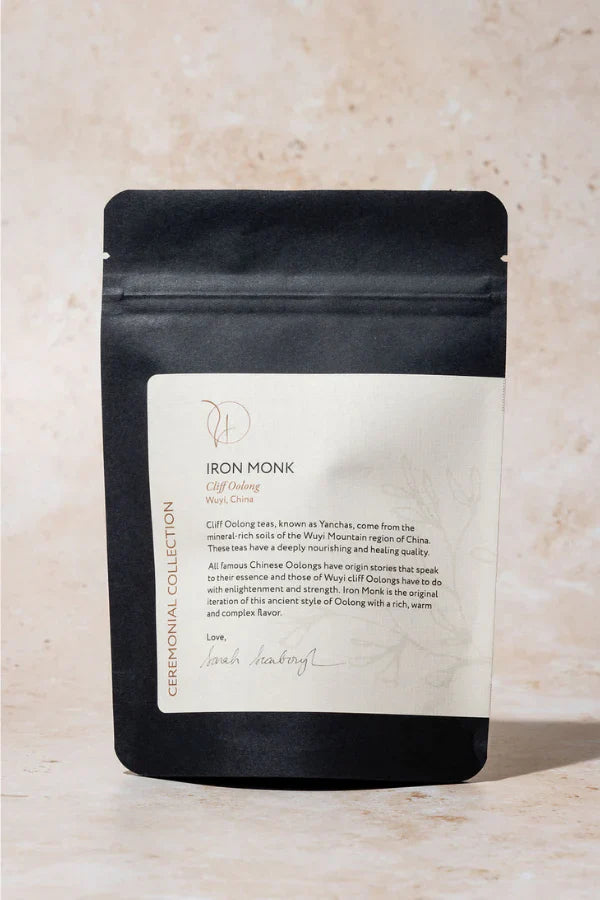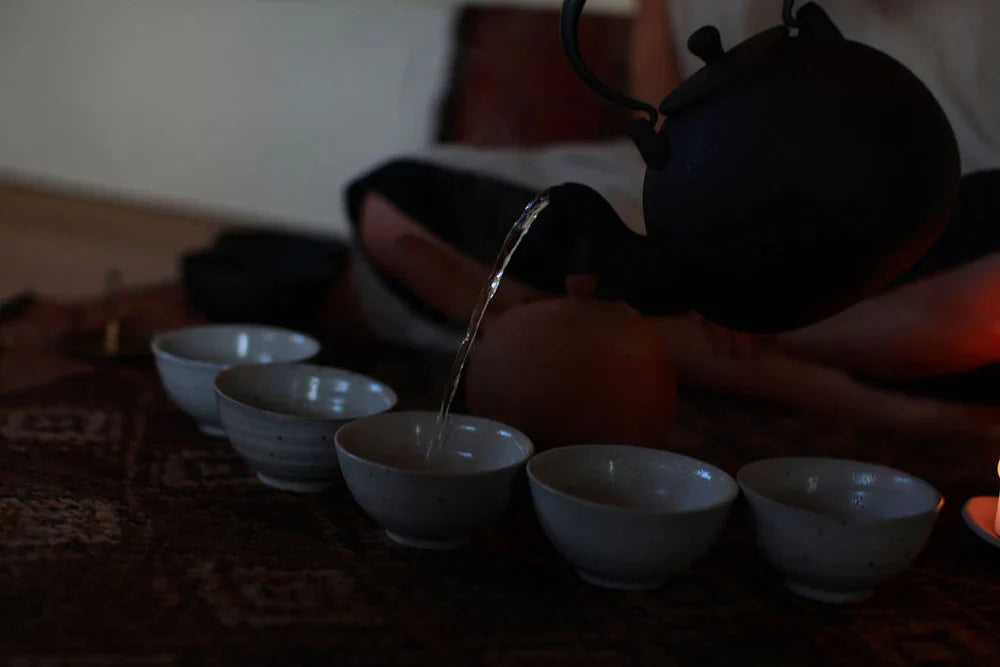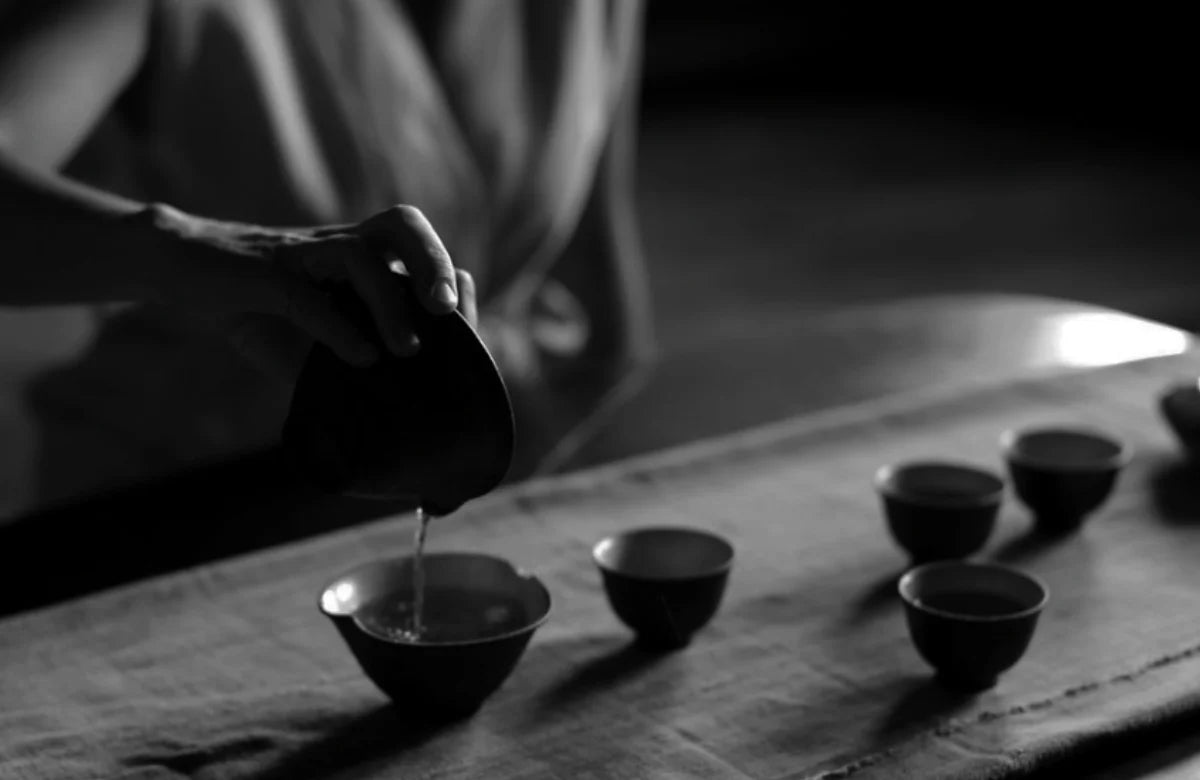
Brew Like a Monk: Stillness, Strength & the Iron Monk Tea
There is a quiet power in every cup of tea. At Teahuntress, we believe that tea is more than a beverage—it’s a ritual, a grounding presence, and a return to the self. And you really feel that truth with our Iron Monk tea – it's this bold, kinda thoughtful oolong tea that comes straight from the cliffs of the Wuyi Mountains in Fujian, China.
You know, in this place with all these rocks and quiet, this tea is made using this rock oolong process that's been around for centuries. It's almost like that process gives the tea its own vibe: strength, stillness, and this real inner toughness.
A Monk’s Discipline in Every Leaf
Iron Monk is not just a name—it’s a legacy. The tea’s Chinese name, Tie Luo Han, translates to “Iron Arhat,” referring to a legendary monk known for his meditative power and unwavering resilience. According to myth, the original Iron Monk achieved enlightenment through self-discipline and connection to nature—qualities embodied in the tea that bears his name.
The oolong tea that comes from these rocky cliffs? It's totally one-of-a-kind. It grows in soil that's packed with minerals, deals with some wild weather, and gets looked after super carefully, almost like monks are doing it. So, the Iron Monk tea leaves? They're tough, they bounce back, and they're really soaked through with the flavor of that land. The result is a brew that reflects the grounded stillness of stone and the deep, abiding strength of spiritual practice.
The Rock Oolong Tea Process: A Ritual of Earth and Fire
What makes Iron Monk so powerful is not only where it grows, but how it’s made. The rock oolong tea process is both an art and a meditation. The leaves are hand-plucked and withered under the sun, then gently twisted to awaken their inner oils. As the leaves oxidize, they begin to reveal their character—somewhere between green and black, never fully one or the other. Just like us, they live in the in-between, in transition, in movement.
Then comes the roast—an open flame, wood-fired ritual that requires intuition, patience, and a steady hand. This stage can last for hours or even days, depending on the weather and the tea master’s instinct. In this heat, the bitterness is tempered, the body enriched, and the flavor transformed. It is through fire that the tea becomes whole. Just like the Iron Monk, this tea is shaped by adversity, refined by stillness, and strengthened by time.
Strength in Silence
There’s something about sipping Iron Monk that feels like entering a sanctuary. Its flavor is bold yet layered: roasted nuts, stone fruit, mineral earth. It lingers on the tongue like a prayer—complex, comforting, contemplative. The energy is not jarring like coffee or overly floral like some green teas. Instead, it is steady. Balanced. Quietly powerful.
This makes Iron Monk the perfect companion to your daily rituals. Whether you begin your mornings with silent journaling or end your evenings in a slow yoga flow, this tea deepens your presence. It reminds you to be—to ground into your body, to take root in the moment, and to build inner strength not by force, but by awareness.
Tea as a Modern Monk’s Practice
To measure your leaves with care. To heat your water with patience. To pour mindfully and steep with attention. These are not just brewing steps—they are small acts of devotion. The ritual of preparation is as healing as the tea itself.
At Teahuntress, we invite you to reclaim this space. To use this tea not just for taste, but for transformation. To brew like a monk means to engage with life slowly, fully, and from the heart. It means showing up to your tea as you would a sacred text—with reverence.
A Cup That Mirrors the Self
Iron Monk is not for those looking for something trendy or fleeting. It's tea for the seeker. The one who wants to feel something deeper in the cup. The one who longs for grounded strength in the face of change. For that person, this tea is not just nourishment—it is a mirror. It shows us who we are when we strip everything else away.
In its strength, we remember our own. In its stillness, we find our breath again.
So as you steep your next cup, consider this: You’re not just making tea. You’re creating space—for quiet, for clarity, for you.


